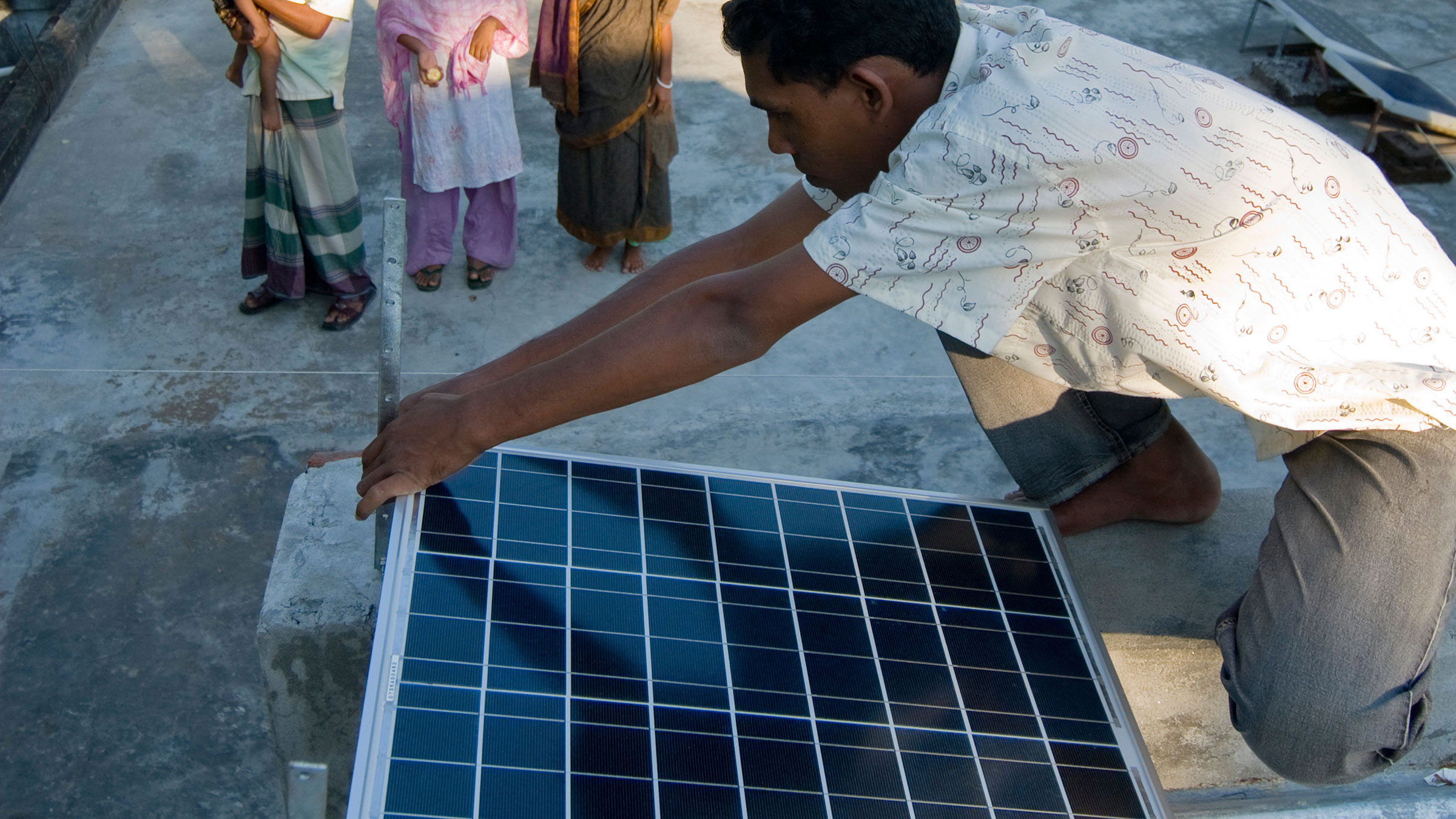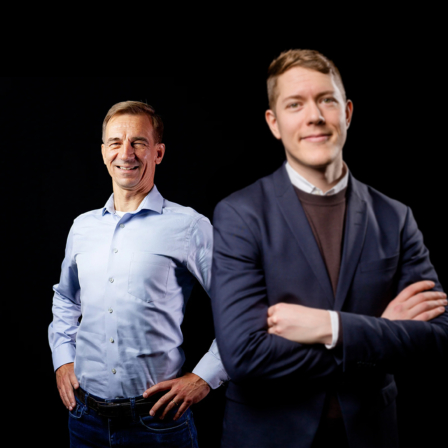Abu Dhabi-UAE: 19 January, 2016 – The Masdar Institute of Science and Technology, an independent, research-driven graduate-level university focused on advanced energy and sustainable technologies, and the independent public Finnish think tank Sitra, today jointly hosted the Middle East launch of the Green to Scale report that assesses a number of high-impact climate change mitigating solutions from around the world and analyses the scope of their implementation in other countries.
The report is significant as the Middle East launch comes shortly after the COP21 Paris conference in which countries across the globe have agreed to reduce emissions. The report highlights 17 tools among which some could help the countries to achieve their targeted emission reductions and go beyond them.
The ceremony was held on the sidelines of the World Future Energy Summit, which is being organized as part of the Abu Dhabi Sustainable Week 2016 at the Abu Dhabi National Exhibition Center (ADNEC). Her Excellency Riitta Swan, Finnish Ambassador to the UAE, Ahmed Djoghlaf, Co-Chair of the Durban Platform for Enhanced Action (ADP), at the United Nations Framework Convention on Climate Change (UNFCCC), officials from Sitra, International Renewable Energy Agency (IRENA) and Masdar Institute management, as well as other partners, attended the event.
Answering how far the world can go by simply scaling up proven low-carbon solutions, the report strives to show that 17 solutions from five different sectors can cut global emissions by a quarter compared with today’s levels if scaled up efficiently.
Masdar Institute participated in developing the report by contributing analysis, communications and outreach, including the provision of regional expertise, data, examples and information about existing low-carbon solutions. Dr. Steve Griffiths, Vice President of Research, represents Masdar Institute as a member of the project’s steering group and Dr. Sgouris Sgouridis, Associate Professor of Engineering Systems and Management, is a deputy member of the steering group.
The Green to Scale analysis suggests 17 proven solutions to reduce greenhouse gas emissions that countries worldwide can implement best practice solutions for climate change. The report shows that the aggregate annual cost of deploying all the 17 solutions globally would be, at maximum, in the range of US$94 billion a year in 2030, yet could even provide net savings of up to US$171 billion per year. The report claims that if 17 climate solutions were adopted internationally, the world would eliminate approximately 12 billion tons of greenhouse gas emissions by 2030.
Dr. Behjat Al Yousuf said, “Masdar Institute is pleased to contribute to the Green to Scale report, and emphasizes the value of propagating tried and tested green energy solutions in the interest of greater sustainability and reduced global climate change. By providing the project with our insight and experience, Masdar Institute has ensured that it includes guidance of relevance to this part of the world, while also demonstrating the extent of our expertise in enabling the reduction of the effects and contributions of climate change. We hope more countries will eventually adopt the measures recommended in the report to help tackle global climate change.”
Mikko Kosonen, President, Finnish think-tank Sitra, said, “We already have climate solutions that are proven to work at the level of nations. How far can we go if we take these to a global scale? The joint Sitra and Masdar Institute report shows that these off-the-shelf solutions can make a big contribution to closing the emissions gap, without breaking the bank, and with no need for out-of-this-world inventions.”.
The report has application to the Middle East’s industrial and commercial and residential building sectors through specific industry efficiency, building efficiency, appliance efficiency and solar water heating case studies.. For the transportation sector, it suggests mass transit and vehicle fleet efficiency standards. The grid-connected photovoltaics-grid (PV) case study within the report reaffirms previous studies, such as the International Renewable Energy Agency’s (IRENA) REMap 2030 work, showing the potential for solar energy to be a game changer in saving domestic gas and oil use for potentially more lucrative uses in the Middle East and globally.
Other organizations and institutions that were part of the Green to Scale analysis project include the Alberto Luiz Coimbra Institute for Graduate Studies and Research in Engineering, Brazil, the International Finance Corporation (IFC) of the World Bank Group, the Centro Mexicano de Derecho Ambiental (CEMDA) of Mexico, the Ethiopian Development Research Institute (EDRI), the Institute for Global Environmental Strategies (IGES) of Japan, the European Climate Foundation (ECF) based in the Netherlands, the Stockholm Environment Institute (SEI), the World Resources Institute (WRI) based in the US, the Renmin University of China, and the United Nations Environment Program’s (UNEP) DTU Partnership in Denmark.
The report suggests that the world could cut annual greenhouse gas emissions by about 12 gigatonnes in 2030, using only established and proven climate solutions with no new inventions or vast amounts of capital. It has taken 17 climate solutions that have already proven successful in 36 countries, and asked what would happen if these were scaled up internationally, using realistic projections through 2030. The findings indicate that the solutions could go a long way towards closing the “emissions gap,” the extra emissions reductions required to limit global average warming to less than 2 degrees Celsius by the end of the century, as calculated by the UNEP.
About Masdar Institute
The Masdar Institute of Science and Technology (Masdar Institute) was established by the government of Abu Dhabi as a not-for-profit, private graduate university to develop indigenous R&D capacity in Abu Dhabi addressing issues of importance to the region.
In collaboration with the Massachusetts Institute of Technology (MIT), Masdar Institute has developed an academic and research platform that articulates its mission and vision according to critical energy and sustainability challenges. An important characteristic of Masdar Institute is its focus on complex real-world problems that require a multidisciplinary approach for the development of solutions from an integrated technology, systems and policy perspective. This multi-interdisciplinary and integrated approach is supported by the structure of its academic programs and by the emphasis placed on engaging external partners from industry, government, and other academic institutions in collaborative activities.
Serving as a key pillar of innovation and human capital, Masdar Institute remains fundamental to Masdar’s core objectives of developing Abu Dhabi’s knowledge economy and finding solutions to humanity’s toughest challenges such as climate change.
Masdar Institute integrates theory and practice to incubate a culture of innovation and entrepreneurship, working to develop the critical thinkers and leaders of tomorrow. With its world-class faculty and top-tier students, the Institute is committed to finding solutions to the challenges of clean energy and climate change through education and research.
Masdar Institute offers degrees in:
- MSc Engineering Systems and Management
- MSc Computing and Information Science
- MSc Materials Science and Engineering
- MSc Mechanical Engineering
- MSc Water and Environmental Engineering
- MSc Microsystems Engineering
- MSc Electrical Power Engineering
- MSc Chemical Engineering
- MSc Sustainable Critical Infrastructure
- PhD in Interdisciplinary Engineering
Please visit our website http://www.masdar.ac.ae/
For more information contact:
Name: Shaima Al Jarman
Director – Marketing & Communications
Public Affairs Department
Email: saljarman@masdar.ac.ae
Phone: +971 02 810 9365
About Sitra
The Finnish Think Tank Sitra is a future-oriented organisation that is building a successful Finland for tomorrow’s world. Sitra anticipates social change, tries out new operating models in practice and accelerates business activities aimed at generating sustainable well-being. www.sitra.fi/en

















Recommended
Have some more.